Unit 5: Deontological Approaches

Photo: Justin Lubin / NBC.
The ethics of Immanuel Kant is the most ambitious of Deontological approaches. While other forms of Deontology might place some importance on the goodness of outcomes (by supplementing it with other moral concerns and/or contraints), Kant maintains that the goodness of outcomes has no moral worth whatsoever. Kant argues that the focus of morality should come from the good will, acting for the sake of duty, and respect for all persons. Exploring these ideas is the subject of this module.
We will be guided by 5 learning outcomes in our exploration. At the end of this module, you will be able to…
- Describe Kant’s understanding of the will and maxims, along with how they are connected;
- Reflect on whether the things you pursue in your life are merely conditional goods;
- Create your own examples to illustrate why acting from inclination in mere conformity with duty may have no moral worth;
- Compare and contrast hypothetical and categorical imperatives; and
- Describe what it means to treat a person as an end in themselves and not merely as a means.
Read & Annotate This:
|
Introduction 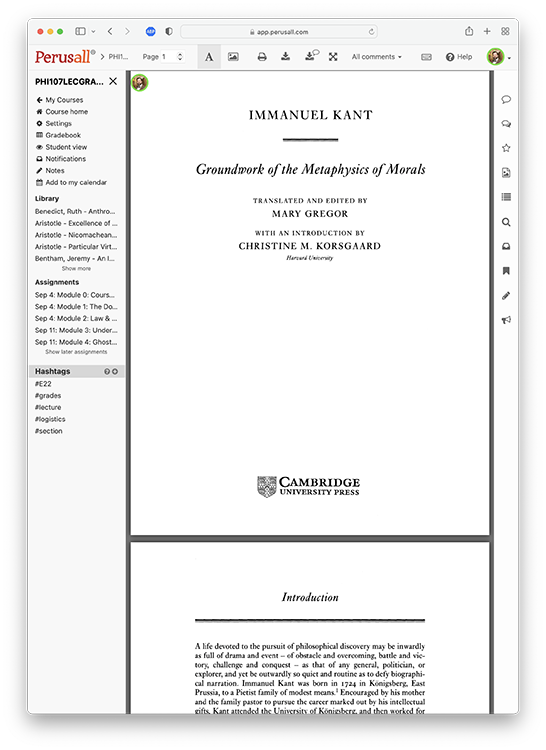
|
Context
In the Groundwork of the Metaphysics of Morals, the great German philosopher Immanuel Kant attempts to provide a foundation for morality that is completely divorced from the consequences of our actions. Instead, Kant argues that the moral worth of an action comes solely from a person’s motive or intention in carrying out their action.
Kant is not easy to read, so we will primarily focus on Christine Korsgaard’s (1998) analysis of Kant’s approach to ethics. Here we see how Kant tries to establish the supreme principle of morality, which he calls the “categorical imperative”. Put simply, the categorical imperative demands that moral actions are those based upon reasons that could apply universally to everyone. (It’s kinda like when my grandma would ask me, “What if everyone did that?”)
If you would like to get a taste of what it is like to read Kant, I have included (in the optional “Curious for More?” section below) excerpts from Section I of the Groundwork of the Metaphysics of Morals (Kant, 1785/1998). There Kant explains the unconditional worth of the good will, uses some examples to show the difference between acting from duty and acting in conformity with duty, and then derives the demand that a good will acts in accord with universal laws. If you followed the Korsgaard reading and my videos, I think you’ll be pleasantly surprised at how much you can draw out from this extremely challenging work of philosophy.
Kantian Ethics is not the easiest of topics, so it is sometimes good to see how other people interpret and present it. To help with that, I have also included (again, in the optional “Curious for More?” section below) a couple videos on Kantian Ethics. First, there is a video put together by the folks from The Good Place (2019) with Philosopher Todd May. Second, your favorite substitute teacher, Hank Green, has a video he did for CrashCourse (2016).
Reading Questions
As you read, keep these questions in mind:
- Christine Korsgaard notes that Kant begins by arguing that “a good will is the only thing to which we attribute ‘unconditional worth’” (1998, p. xi). Other things commonly taken to be good (like health, happiness, brilliance, and wealth) have only conditional value. What exactly does all this mean? What seems to be Kant’s point?
- Kant also maintains that “the value of … an action … is independent of what it effects or accomplishes” (Korsgaard, 1998, p. xii). In other words, the moral value of an action does not come from its consequences or outcomes. Why believe that? What then makes an action good? (Hint: Korsgaard’s example of rescuing an endangered enemy tries to illustrate these points.)
-
Korsgaard then explains how Kant tries to show how acting from duty (as opposed to merely acting in conformity with duty) has moral value. This involves a couple of examples:
Kant believes we have a duty to set fair prices and be beneficent, yet these examples are supposed to show a difference between acting from duty as opposed to merely conforming with it. What do these examples reveal about what it means to act from duty?A. A merchant who sets fair prices (and doesn’t overcharge gullible customers), and B. A sympathetically attuned person who is beneficent (by spreading joy to others and helping those in need). - This leads to a discussion about Kant’s claim that the moral worth of an action comes from the maxim on which it is done. (A maxim has the form of “I will do action A in order to achieve purpose P”.) What is a maxim supposed to represent? Why does a maxim give an action its moral value?
- Finally, Kant maintains that actions done from duty show “respect for law” (Korsgaard, 1998, p. xv). What does this mean?
- Putting all this together, Kant believes he has isolated what makes the good will good: it is the will to adhere to the principle that “I ought never to act except in such a way that I could also will that my maxim should become a universal law” (as cited in Korsgaard, p. xv). Now suppose a friend ask to borrow $100 from you. Your friend promises to pay you back, but (unknown to you) they actually have no intention to ever pay you back. So your friend is acting on the maxim “I will make a false promise to get $100”. Does your friend’s maxim pass Kant’s test? Why or why not?
- Moving into Section II, Korsgaard notes that both falling objects and my actions obey laws. However, what is the important difference between how objects obey laws and how I obey laws?
- This leads Korsgaard to present Kant’s distinction between hypothetical and categorical imperatives. (An imperative has the form, “if you seek purpose P, then you should do action A”.) What is the difference between hypothetical and categorical imperatives?
- When attempting to follow a hypothetical imperatives, what does it mean to create a “practical contradiction” (Korsgaard, 1998, p. xvii)?
- What are Kant’s three formulations of the categorical imperative? How does Kant try to justify each of these? To go back to the example of your friend acting on the maxim “I will make a false promise to get $100”, how does your friend violate all three forms of the categorical imperative?
- What does it mean for a person to have “dignity” (Korsgaard, 1998, p. xxv)? How is this connected to a person’s autonomy as a legislator?
Although I strongly suggest that you write out brief answers to these questions, you do not have to turn in written responses. You do, however, need to be prepared to answer questions like these on module quizzes and the unit exams.
References
CrashCourse. (2016, November 14). Kant & Categorical Imperatives: Crash Course Philosophy #35 [Video]. YouTube. https://www.youtube.com/watch?v=8bIys6JoEDw
Kant, I. (1998). Groundwork of the metaphysics of morals. (M. Gregor, Ed. & Trans.). Cambridge University Press. (Original work from 1785)
Korsgaard, C. M. (1998). Introduction. In I. Kant (Author) & M. Gregor (Trans. & Ed.), Groundwork of the metaphysics of morals (pp. vii–xxx). Cambridge University Press.
The Good Place. (2019, January 3). Mother Forkin’ Morals with Dr. Todd May - Part 4: Deontology - The Good Place (Digital Exclusive) [Video]. YouTube. https://www.youtube.com/watch?v=2S_XuJTOEJY
Watch This:
|
Video 1 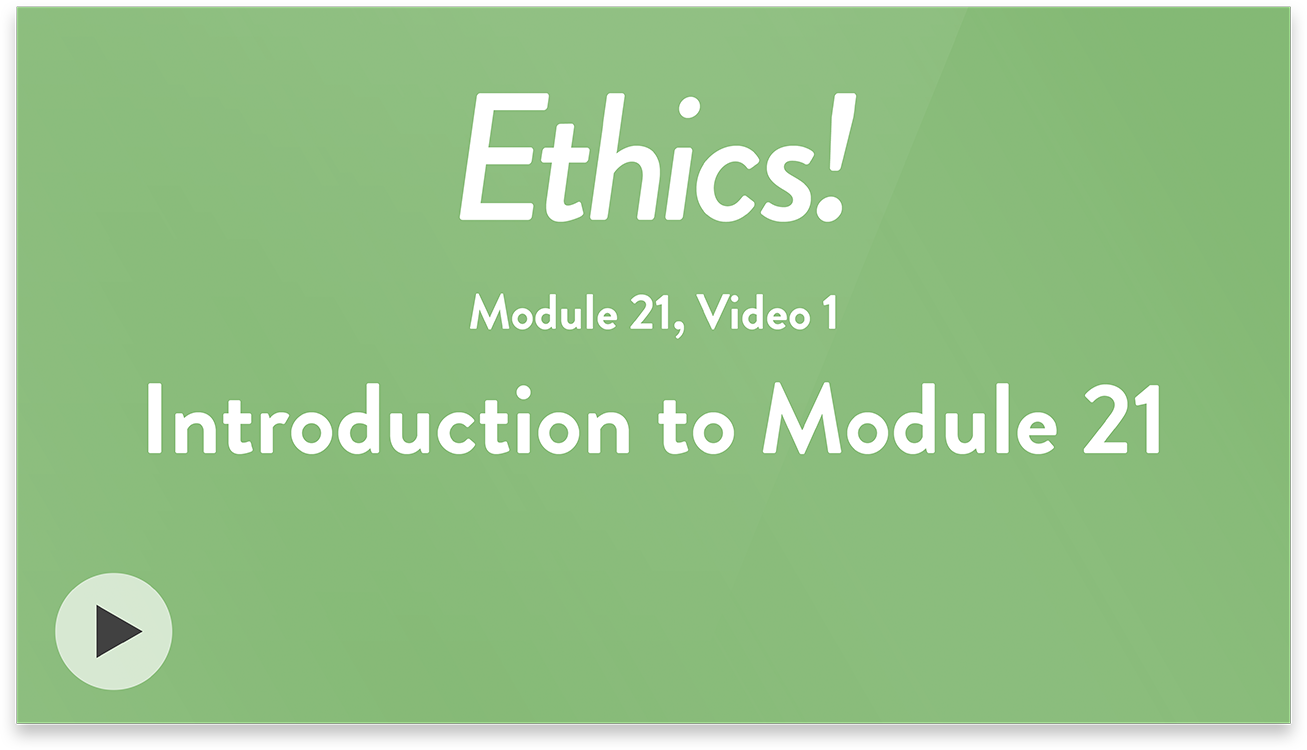
|
Video 2 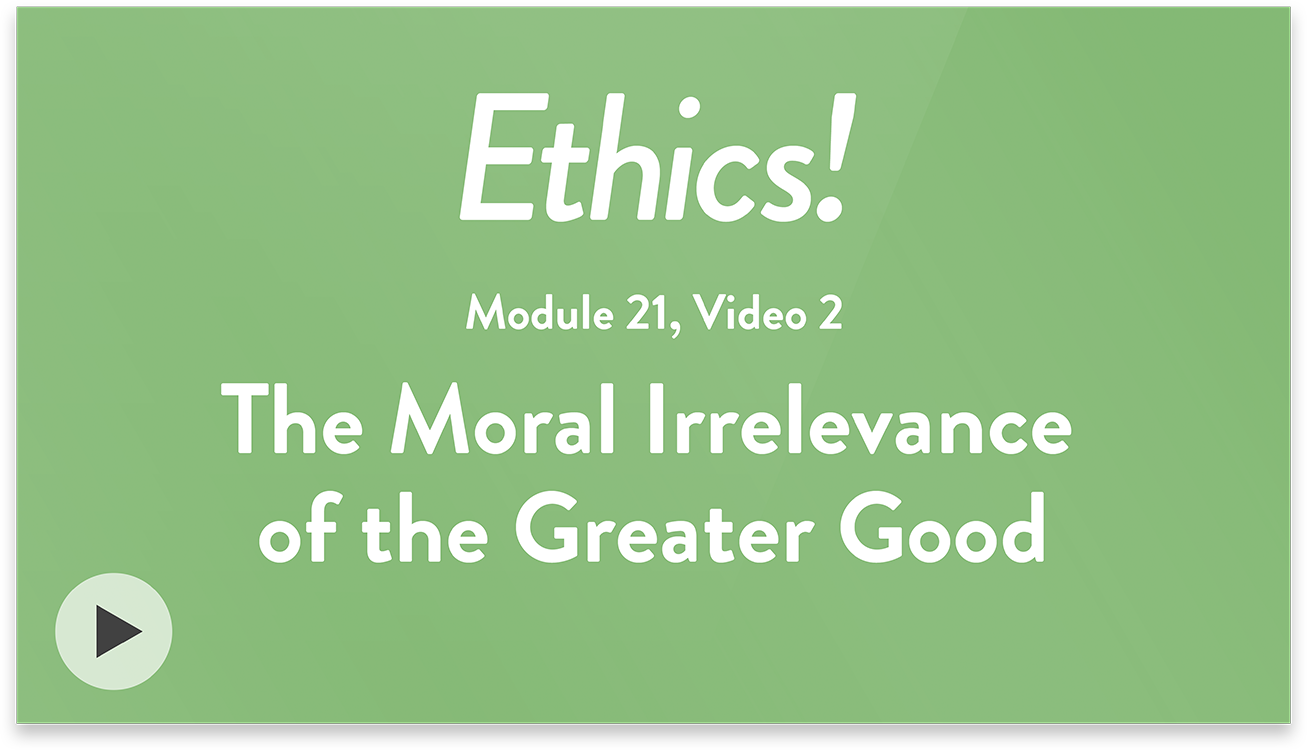
|
|
Video 3 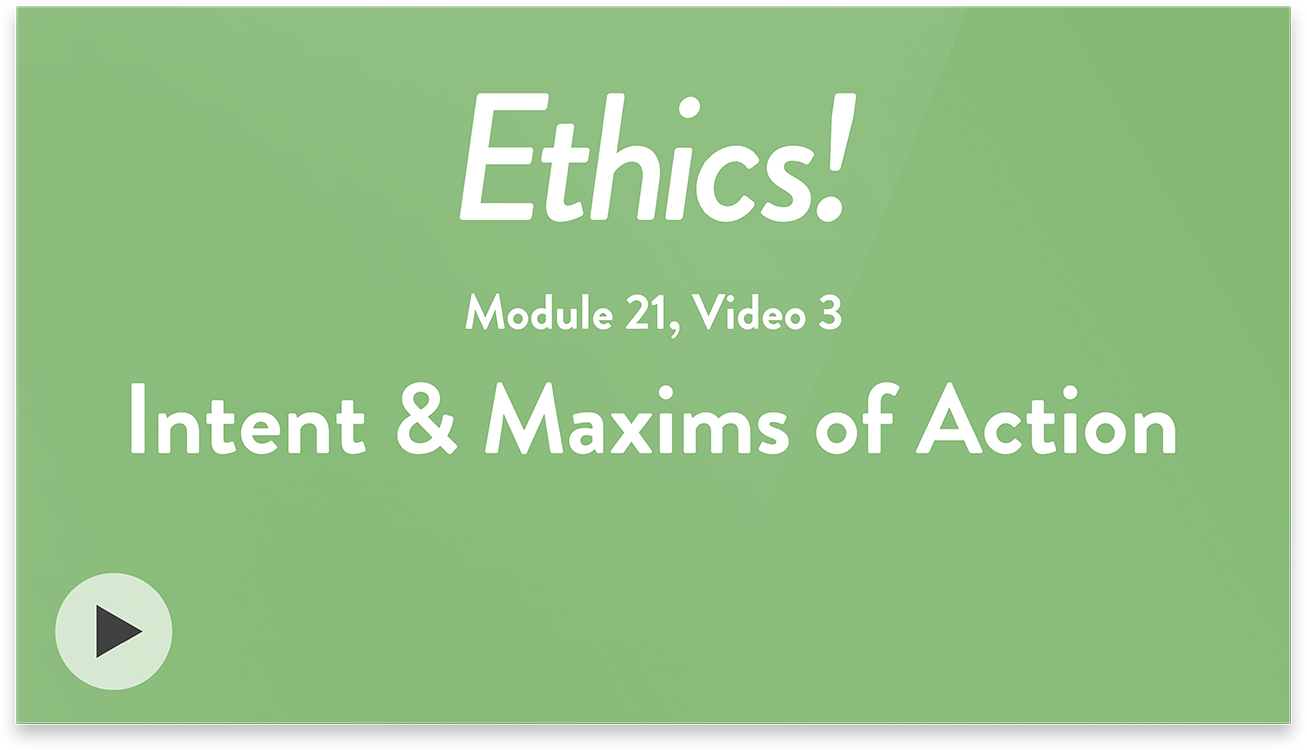
|
Video 4 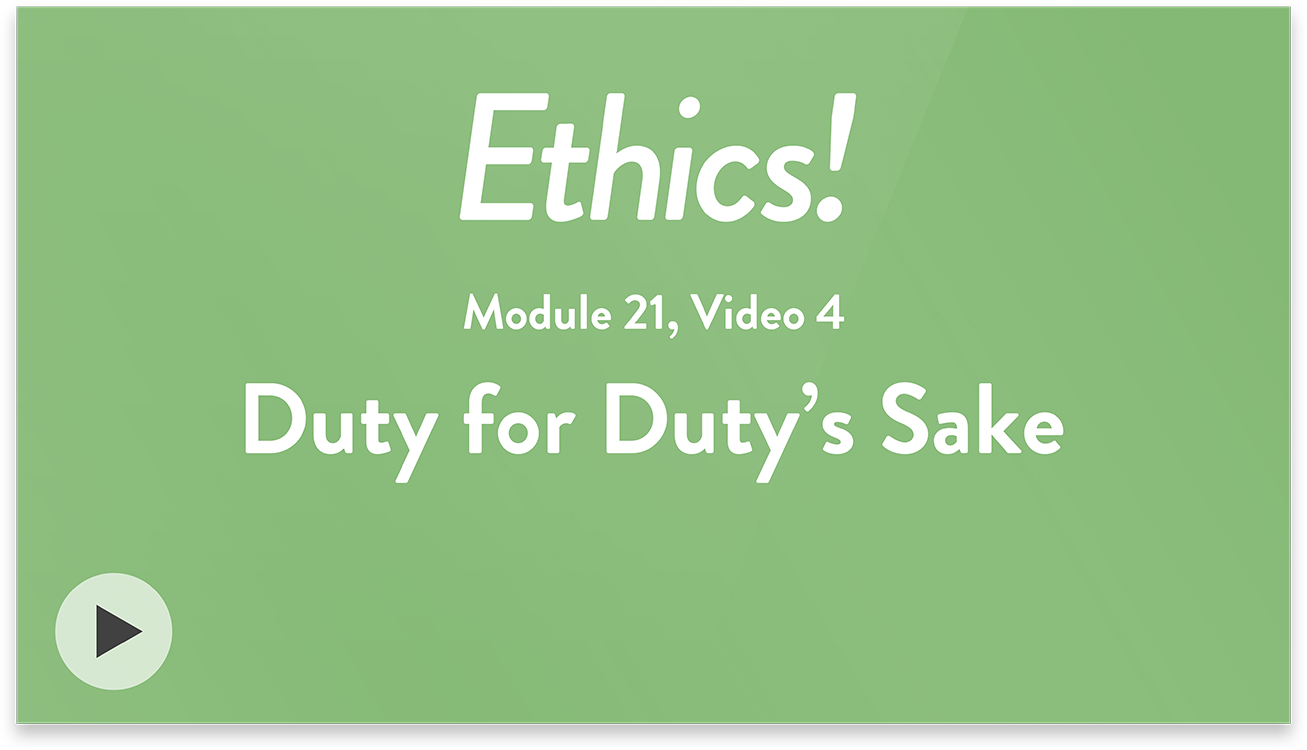
|
|
Video 5 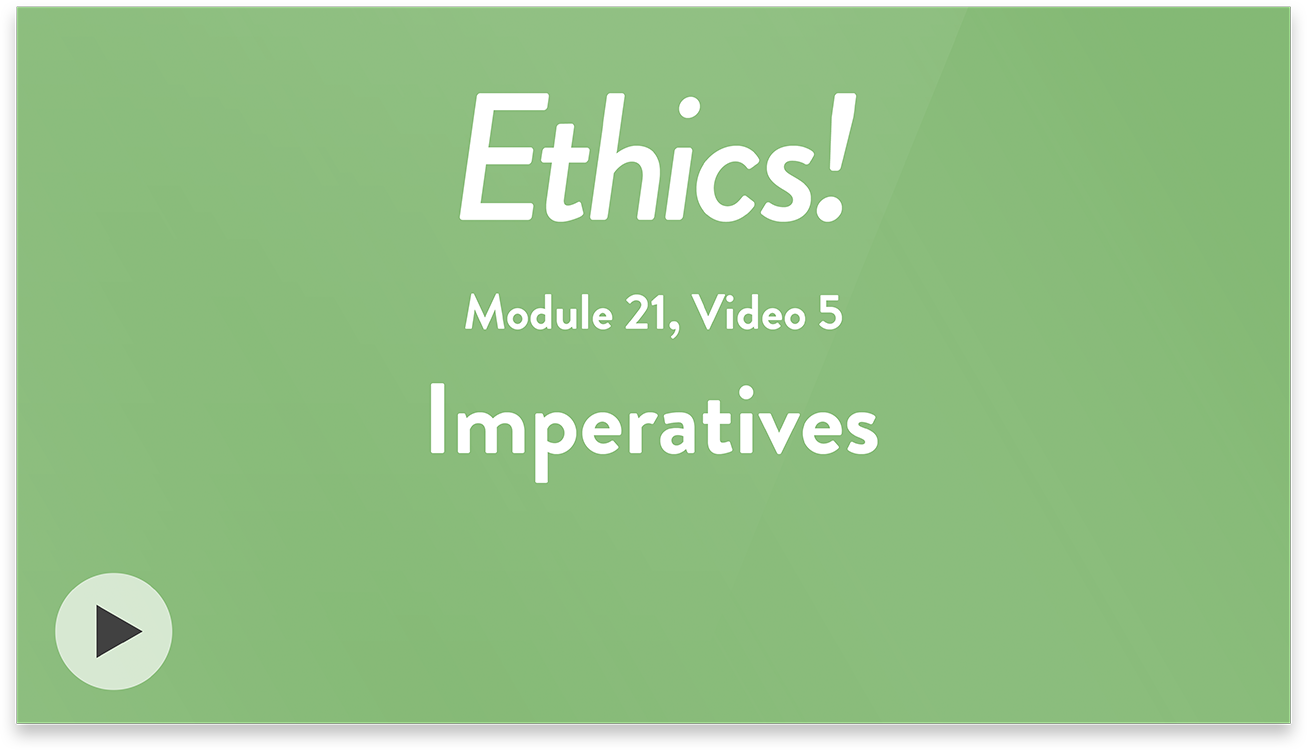
|
Video 6 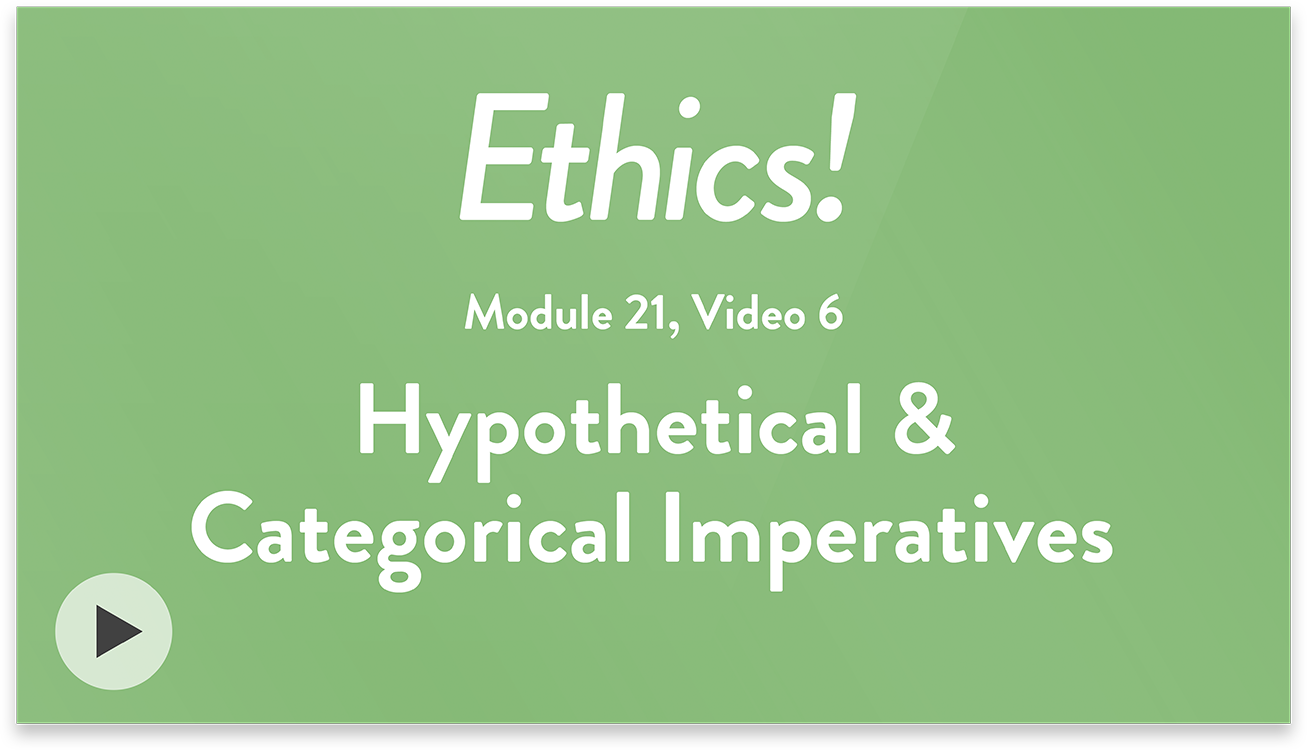
|
|
Video 7 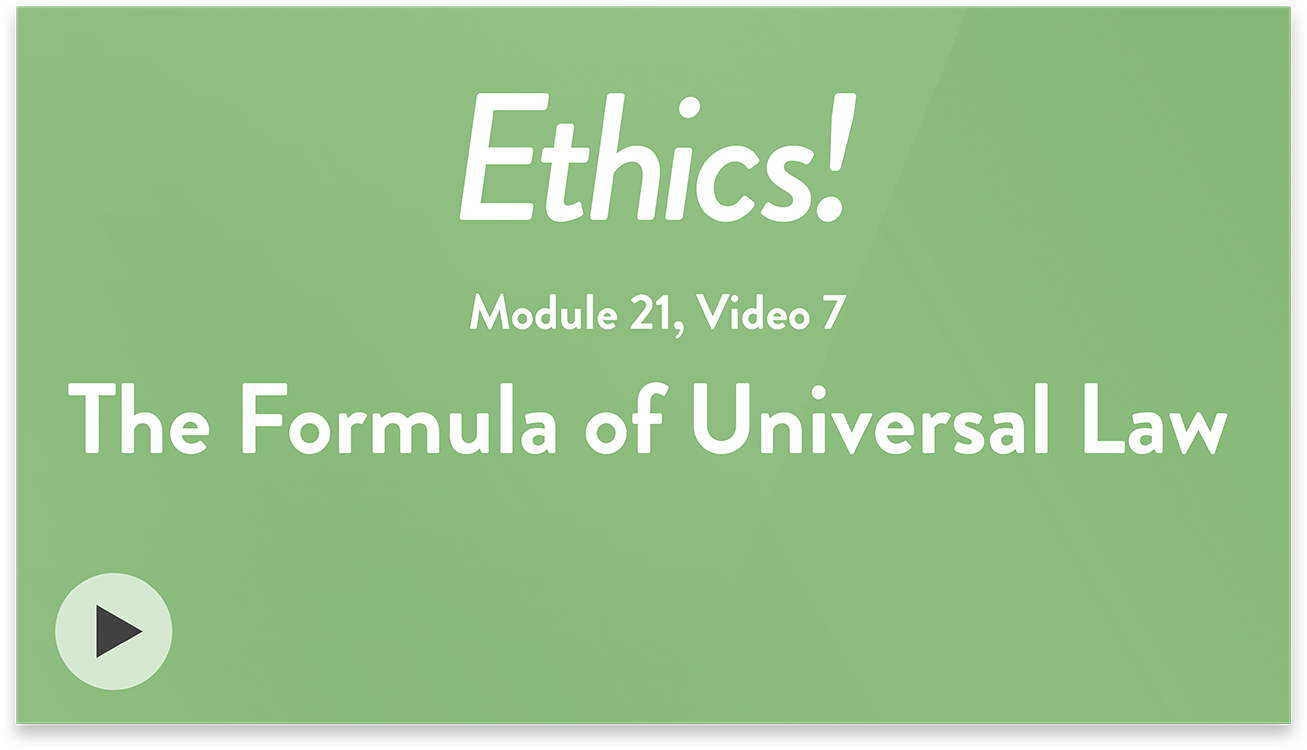
|
Video 8 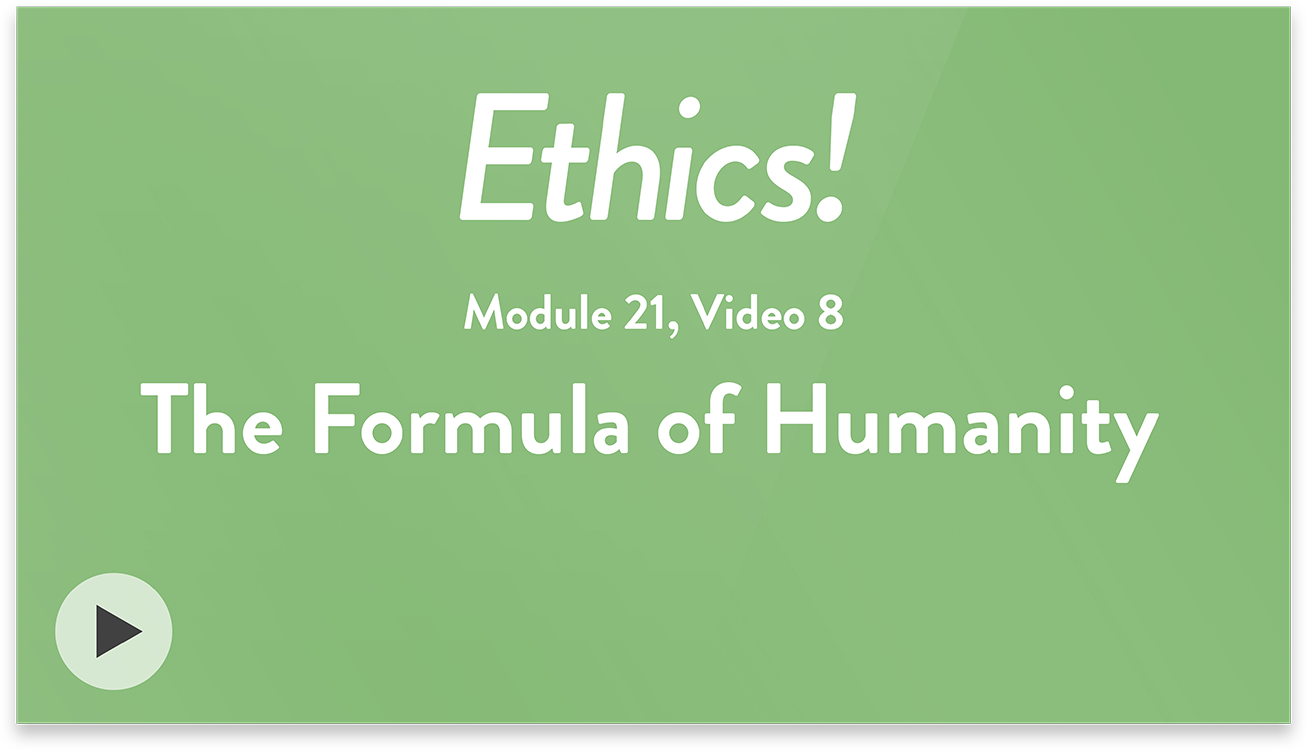
|
Do This:
|
Module 21 Quiz 
Due: November 12 |
Tweets for the Week 
Due: November 12 |
Unit 5 Exam 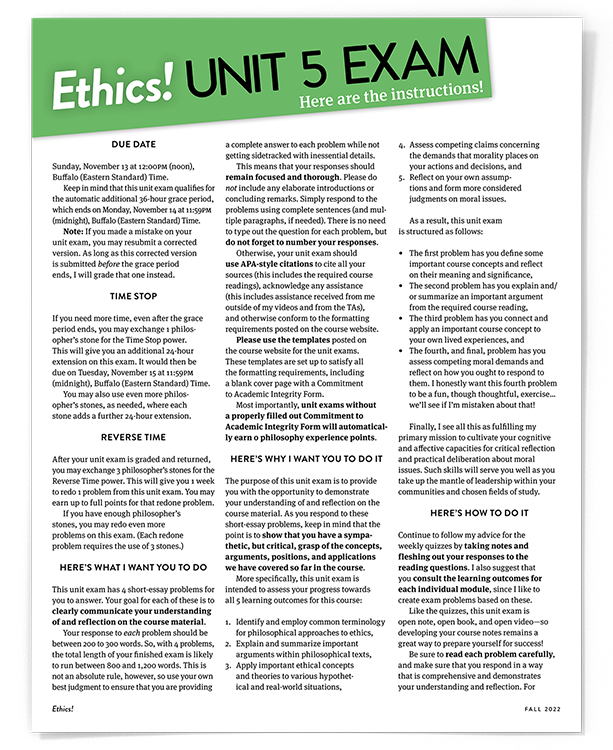
Due: November 13 |
Submit the Unit 5 Exam here!
Curious for More? (Optional)
|
Groundwork of the Metaphysics of Morals 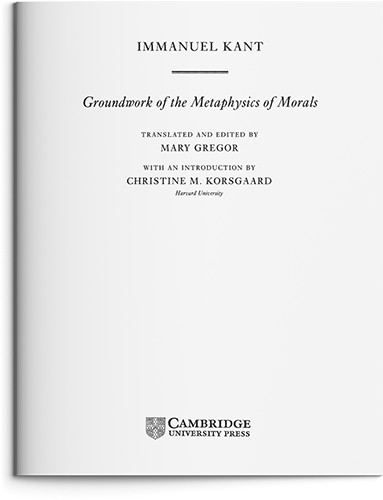
|
Do you want a nice summary of Kantian Ethics, along with some references from The Good Place? My friend, I have you covered!
Do you want your favorite (substitute) teacher to explain Kantian Ethics? Well, you are in luck!


